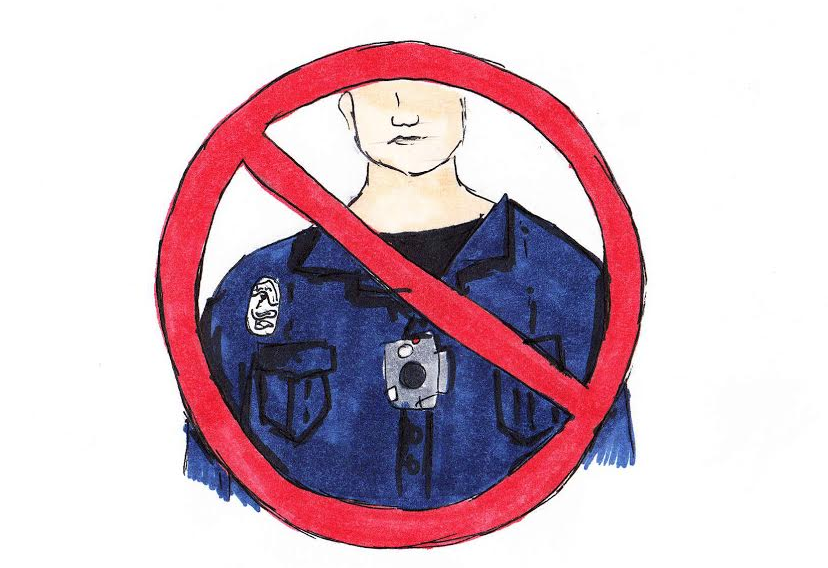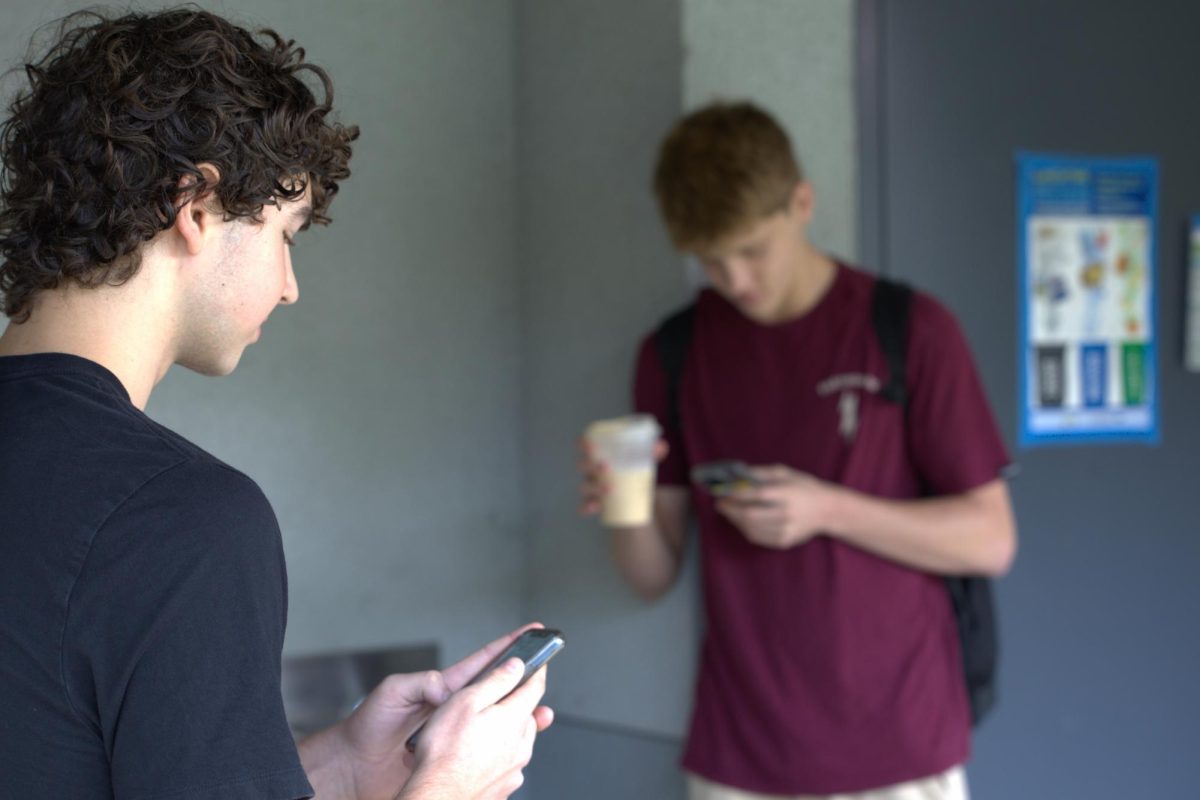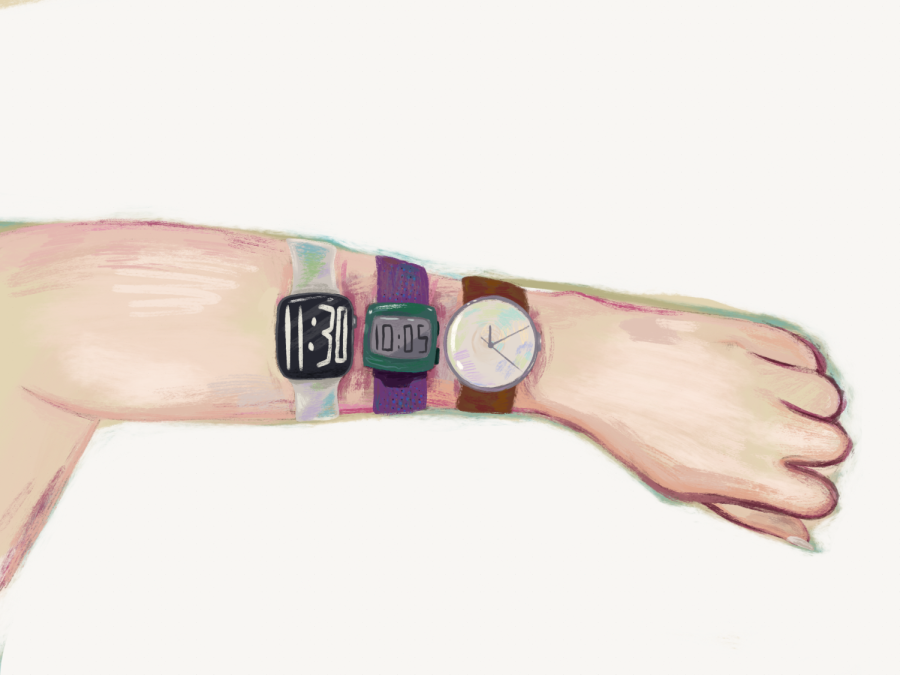
Michael Brown was fatally shot by police officer Darren Wilson on August 9, 2014, in Ferguson, Missouri. Outcries alleging police brutality, racism and excessive use of force ensued, with civil unrest ultimately erupting in the streets. As a state of relative normalcy once again fell upon Ferguson, the Police Department is left to sort out the aftermath of this calamity.
How do we prevent tragedies like this from happening again?
Many believe the answer seems to lie in the implementation of body cameras worn by all officers. If all interactions officers have with civilians are documented, then there will never be question as to the legality of an officer’s use of force. Or at least theoretically that will be the case.
As body cameras slowly begin to work their way into the day to day operations of departments across the nation, cameras are becoming more common and are used in a wider array of situations.
On Sept. 16, 2015, the Ventura Police Department began to use body cameras when they respond to crimes or fights on Ventura Unified campuses.
The cameras may be activated when officers are called to investigations and enforcement encounters when there is good reason to believe that a crime is being committed on campus. All recordings will be property of the state, and the principal must be informed after a recording has taken place.
Feel differently? Read Emma Kolesnik’s Opinion article, “Police should be allowed to wear cameras everywhere, including schools.”
Body cameras are being implemented for the “safety” of the collective, but is this really an appropriate use of government authority? Or will it lead to more serious infringements of our Fourth Amendment rights?
The Fourth Amendment guarantees the security of the people in their homes and other property from unreasonable search and seizure. The police must have either a warrant or probable cause to legally conduct a search.
The use of body cameras is being implemented to prevent altercations between officers and citizens, especially in volatile situations from where it is likely violence and allegations of use of excessive force will arise. Conflict between officers and students is extremely rare, and there has not been a significant event regarding conflict on school property among law enforcement and students since the Kent State massacre of 1970.
Though school shootings have become a tragic reality, body cameras used by campus police will not prevent these heinous crimes from occurring.
The requirement for officers to wear body cameras on school campuses will likely lead to increased and greater monitoring. It is a case of the “slippery slope” analogy. If body cameras become normalized, then it is easier to implement the next and more drastic measure of so called security.
How long before the vigil of security cameras in our schools is constant?
Body cameras are simply the first step to paving a pathway toward Orwellian society, and “around the clock” surveillance. Though it is a far leap from body cameras to Big Brother, all great change starts with baby steps.
What is to prevent law enforcement from misusing filmed information? Suppose that a separate crime is committed than the one the officer is responding to. The crime is caught on film, but the officer does not observe it. What then? Will that evidence be used against the perpetrator?
If so, this is a serious infringement on Fourth Amendment rights.
For example, assume that the police have a warrant to search your house on the suspicion that you have committed murder. They find nothing pertaining to the murder, however the officer conducting the search finds narcotics and seizes them. Because the warrant was not for the possession of narcotics, this information cannot legally be used in a court of law.
Body cameras in schools opens the door for abuse of the Fourth Amendment, provides the stepping stones for further and more drastic surveillance, and cultivates a sense of mistrust between citizens and the police.
In a world where civil liberties fall secondary to the idea of “safety” we must not stand idly by. Do not let the road be paved to a world in which human rights are buried under an avalanche of cameras and surveillance devices.














Foothill Alumni • Nov 30, 2015 at 6:25 pm
I know this is a bit late, but I wasn’t sure about posting a comment. Let me just get to it. I think you’re being a bit paranoid, CJ. The implementation of cameras on police officers is to ensure that an incident like Michael Brown’s won’t go undocumented. It seems like every other month we would hear about another innocent, non-violent African-American being killed, but just imagine how many of those deaths happen right over our head since there was no video to capture it. You may not fully understand it, being a Caucasian in southern California but for a black kid in Missouri, the danger is all too real.
Also, the example you used of a police officer finding narcotics in the house of a suspected murder doesn’t really work. Not everything is as black and white as you think it is. In Chimel v. California, it was ruled that police officers could not search an entire home without a warrant, but any evidence, regardless of a warrant, in their immediate reach could be seized. Let me give you an example: a man is suspected of drug trafficking and a warrant for his arrest is issued, and police officers stumble upon a room filled with dead bodies. Wouldn’t it be reasonable to assume that the man is also a murder suspect?